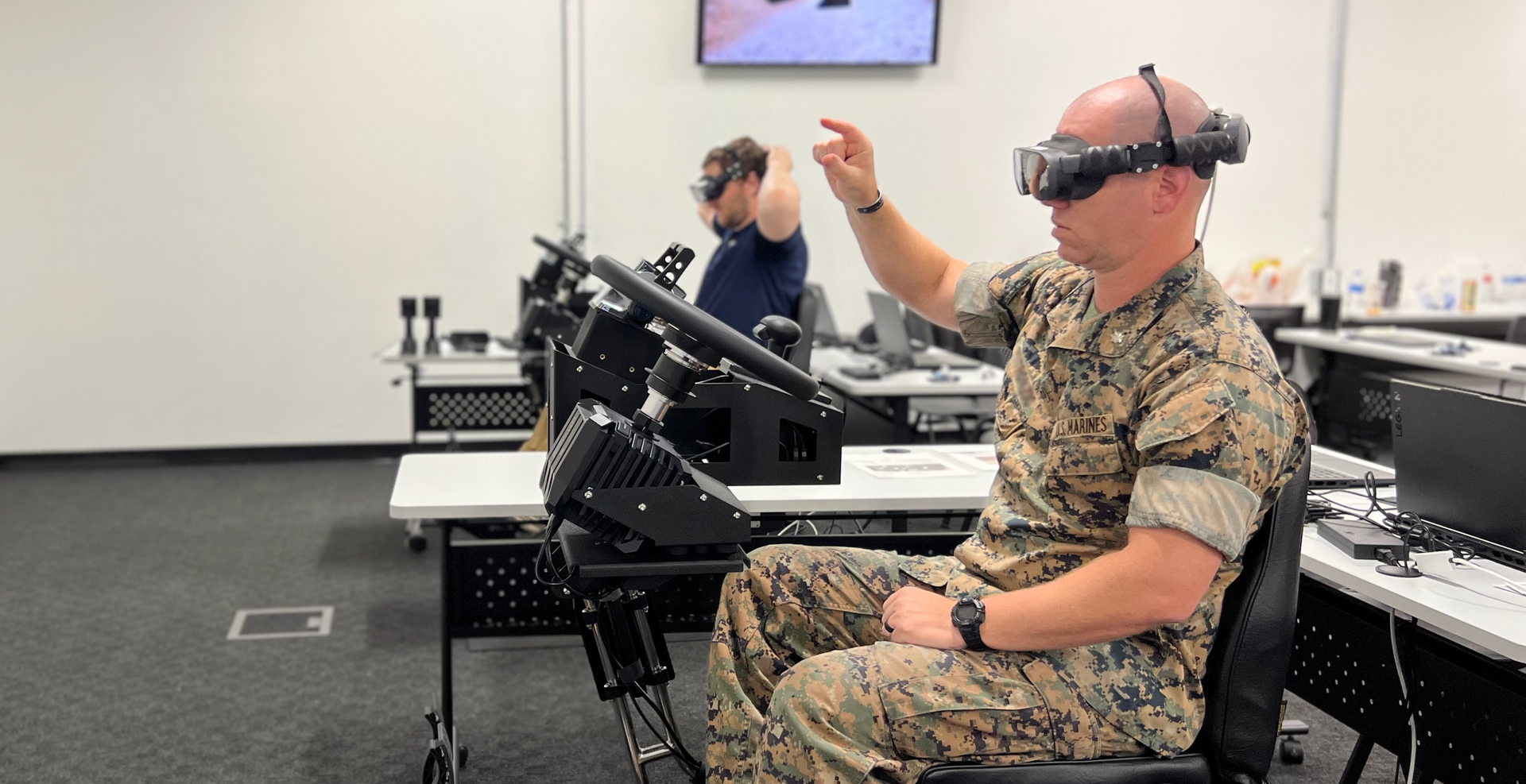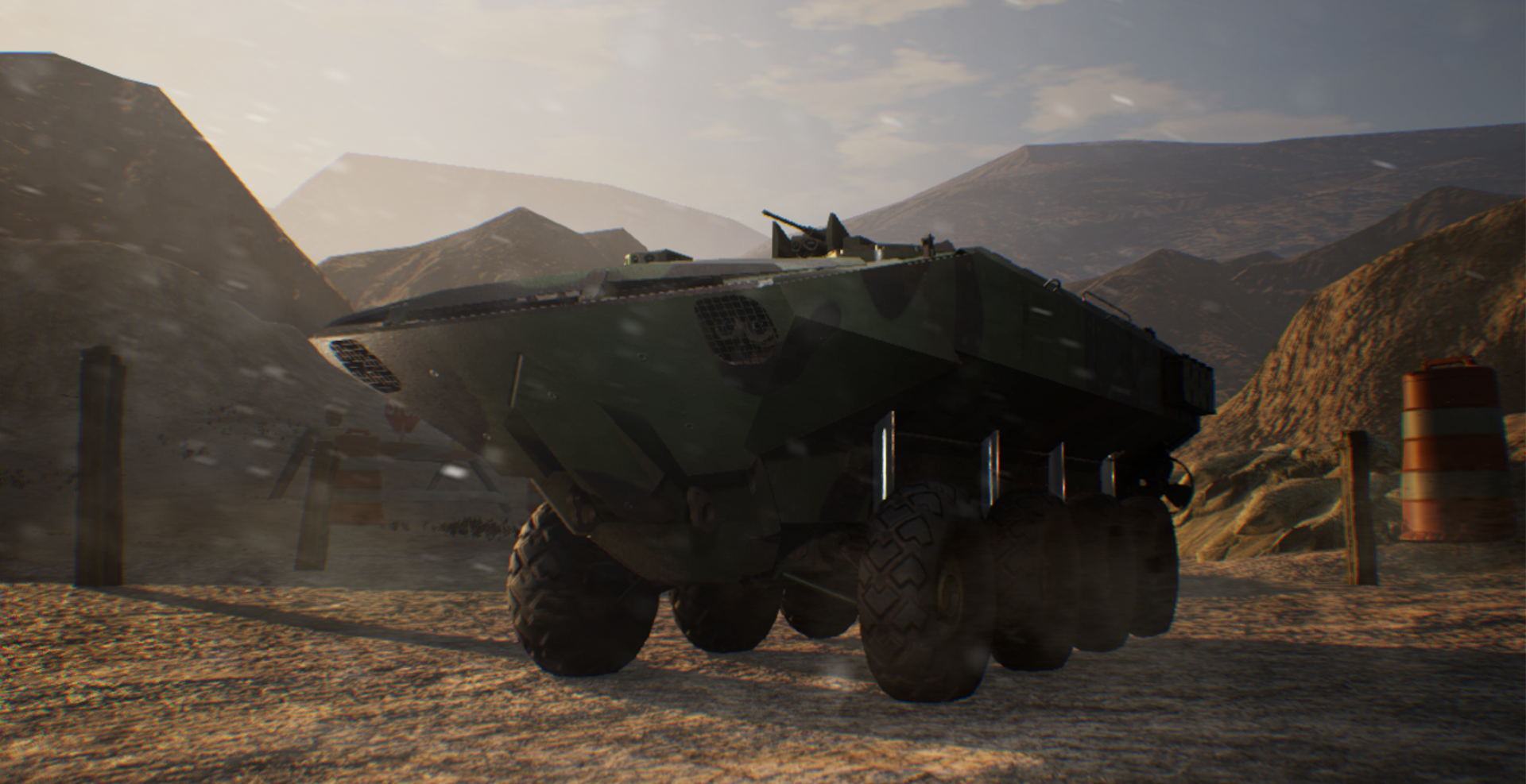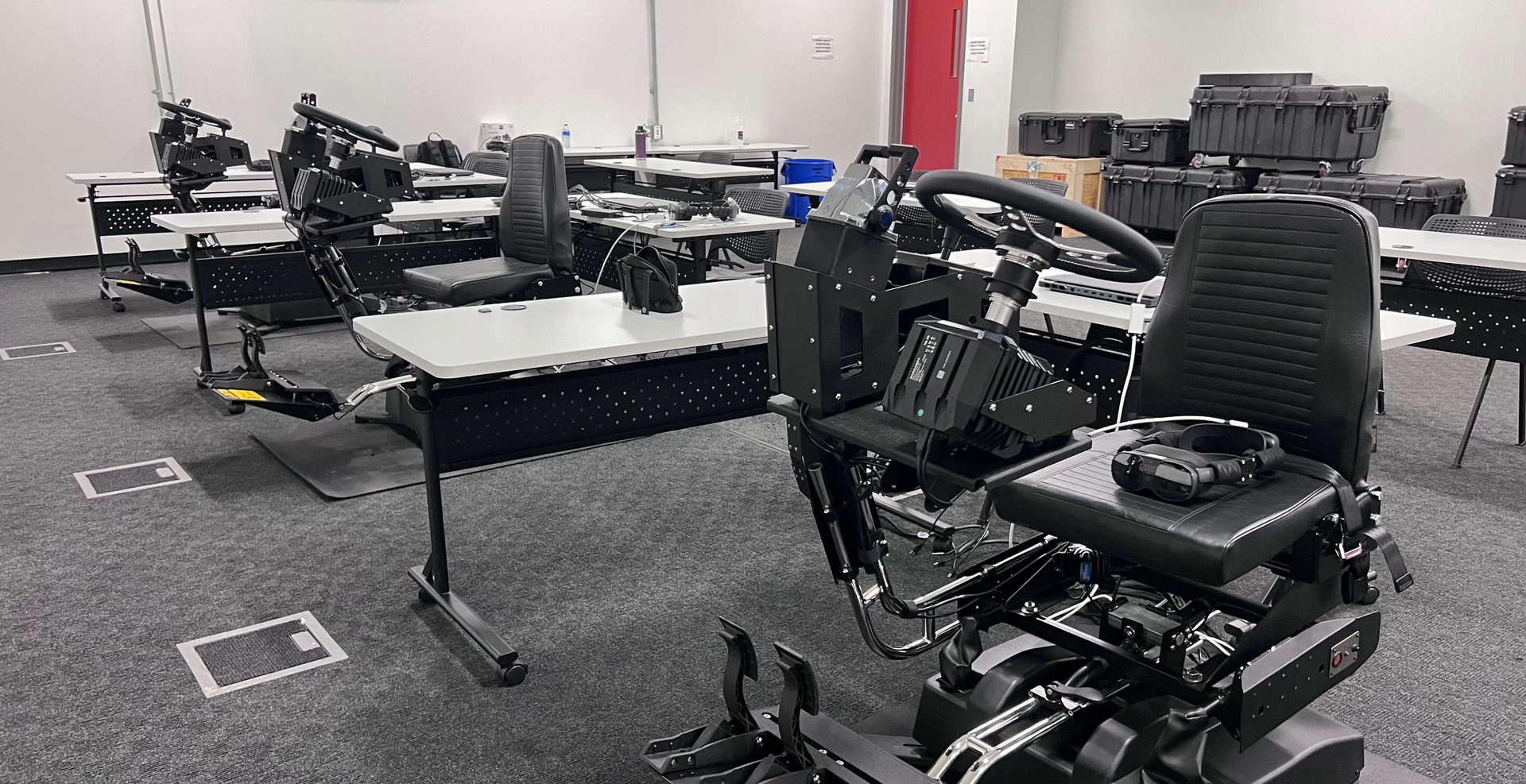ACV-DTS
ACV-DTS

The U.S. Marines sought a partner to develop a virtual trainer prototype for its crucial Amphibious Combat Vehicle. To bid for that project, XR Training convened a consortium of businesses from across the Southeast, with complementary areas of expertise in an effort to provide the Warfighter with a solution that would keep soldiers safe. The U.S. Marines selected XR Training’s bid to develop the ACV’s Driver Training System.
In the end, the collaborative team successfully developed its immersive VR training system prototype, tailored for the combat vehicle and showcased its ability to present soldiers with multiple scenarios. Through VR headsets and custom controllers with simple-to-use interfaces, the solution earned high praise from military personnel.
ACV-DTS
ACV-DTS


The U.S. Marines sought a partner to develop a virtual trainer prototype for its crucial Amphibious Combat Vehicle. To bid for that project, XR Training convened a consortium of businesses from across the Southeast, with complementary areas of expertise in an effort to provide the Warfighter with a solution that would keep soldiers safe. The U.S. Marines selected XR Training’s bid to develop the ACV’s Driver Training System.
In the end, the collaborative team successfully developed its immersive VR training system prototype, tailored for the combat vehicle and showcased its ability to present soldiers with multiple scenarios. Through VR headsets and custom controllers with simple-to-use interfaces, the solution earned high praise from military personnel.
Project
Overview
Project Goal
Amphibious Combat Vehicle’s Driver Training System
Project Duration
107 Days
The project to create a trainer for the Amphibious Combat Vehicle Driver Training System, known as the Wave Warrior project internally, laid the groundwork for a product that can be iterated on in the future, providing the flexibility needed for the U.S. Marines to swiftly adjust, as needed.
The U.S. Marines sought a partner to develop a virtual trainer prototype for its crucial Amphibious Combat Vehicle.

About the Project
The U.S. Marine Corps’ goal was to create a high-fidelity environment that would include training on the vehicle in several disparate locations, including land, water and surf zone.
Problem Statement

The U.S. Marine Corps found itself in need of a training solution for its Amphibious Combat Vehicle’s Driver Training System. As the average age of military personnel remains low, meeting them where they are – that is, in virtual environments and on gaming-related hardware and technology – has become more crucial to the training environment. The solution to this is a virtual reality training system that future personnel can immerse themselves into quickly and effectively.
Research
Strategize
Design
Prototype
Research
Strategize
Design
Prototype
Our
Process
XR Training’s first order of business was to convene subject matter and technology experts to create a consortium of companies that would collaborate on a project outline to submit in a bid for the project. The four firms then created a xxx-page proposal that would serve as its bid for the project. Once the project was won, frequent collaboration and check-in meetings would be necessary to ensure all parties were on track to meet milestones and goals. XR Training ensured all milestones were met and, 107 days later, the consortium delivered a working prototype, as promised.
Project Timeline


Using Unreal Engine 5, the team was able to incorporate realistic vehicle physics and cutting edge VR technologies.
Project Solution

To address the U.S. Marine Corps’ needs for a simulation-based training program for its Amphibious Combat Vehicle’s Driver Training System, the consortium led by XR Training successfully completed an initial prototype and set a timeline for future iterations and development, as needed. Approaching it with authenticity and relevance in mind, the use of these technologies allowed the team to accurately represent scenarios users would face during training. To do this, the project combined its state-of-the-art hardware with real-time 3D tools to create a highly realistic, responsive training environment.


